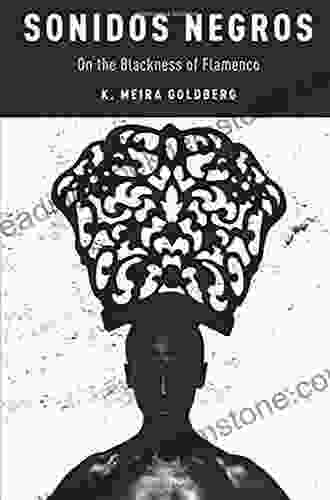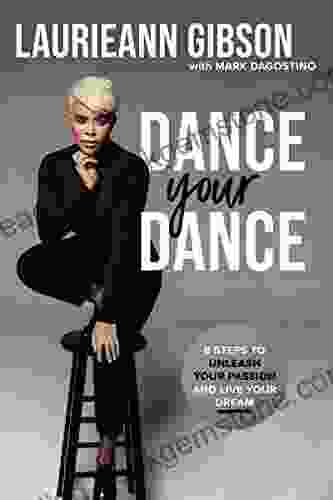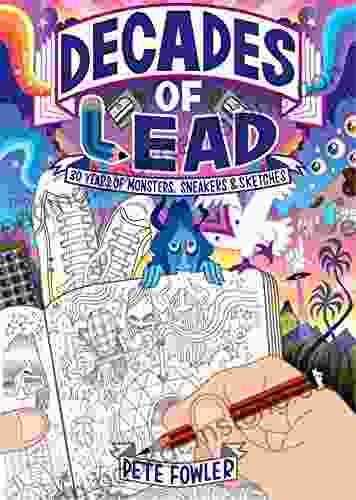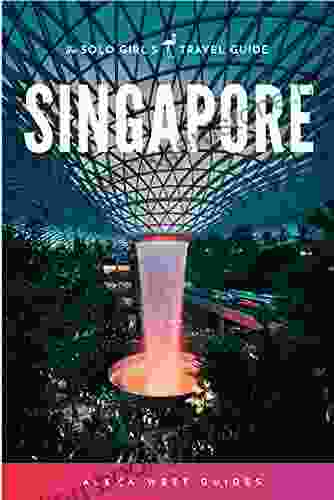On the Blackness of Flamenco Currents in Latin American and Iberian Music

Flamenco, a captivating and vibrant art form that originated in southern Spain, has long been associated with the passionate and expressive culture of the Andalusian region. However, what is often overlooked is the significant influence that blackness has had on the development of flamenco, both musically and culturally.
4.9 out of 5
| Language | : | English |
| File size | : | 6109 KB |
| Text-to-Speech | : | Enabled |
| Screen Reader | : | Supported |
| Enhanced typesetting | : | Enabled |
| Print length | : | 315 pages |
| Lending | : | Enabled |
The roots of this connection can be traced back to the arrival of enslaved Africans in Spain during the 15th and 16th centuries. These individuals brought with them their own musical traditions and cultural practices, which gradually intermingled with those of the Spanish people. Over time, this cultural exchange gave birth to new musical forms, including flamenco.
The Musical Influence of Blackness on Flamenco
Musically, the influence of blackness on flamenco is evident in several key areas:
- Rhythmic patterns: Many of the complex and syncopated rhythms that are characteristic of flamenco can be traced back to African drumming traditions. These rhythms provide flamenco with its distinctive and infectious energy.
- Melodic structures: The melodic structures of flamenco often feature intervals and scales that are common in African music. These melodies are often characterized by their emotional intensity and expressive qualities.
- Vocal techniques: The vocal techniques used in flamenco, such as melismas (rapidly repeated notes) and gruff vocals, are reminiscent of African singing styles.
The Cultural Influence of Blackness on Flamenco
In addition to its musical influence, blackness has also had a profound impact on the cultural development of flamenco. This is evident in the following ways:
- Dance styles: The舞者in flamenco often incorporate African-inspired movements, such as hip sways and footwork. This adds a sensual and expressive dimension to the dance.
- Costumes: The traditional costumes worn by flamenco dancers, such as the bata de cola (long-tailed dress) and the sombrero cordobes (wide-brimmed hat),are influenced by African fashion and textile traditions.
- Themes and lyrics: Many flamenco songs explore themes of slavery, oppression, and the longing for freedom. These themes are often expressed through the use of metaphors and allegory, which can be traced back to African storytelling traditions.
Contemporary Manifestations of Blackness in Flamenco
The relationship between flamenco and blackness continues to evolve and manifest itself in diverse ways in contemporary music, dance, and other art forms:
- Afro-flamenco: Afro-flamenco is a genre that consciously fuses flamenco with African musical traditions. Artists such as La Negra and Tomasito are known for their innovative and experimental work in this area.
- Contemporary flamenco dance: Many contemporary flamenco dancers are incorporating African-inspired movements and rhythms into their performances. This is evident in the work of artists such as Rocío Molina and Israel Galván.
- Flamenco theater and film: Flamenco theater and film often explore themes of race, identity, and the experiences of people of African descent. Notable works in this area include the play "Yerma" by Federico García Lorca and the film "Black Venus" by Abdellatif Kechiche.
The blackness of flamenco currents in Latin American and Iberian music is a complex and multifaceted phenomenon that has shaped the development of this art form in profound ways. From its historical roots in the arrival of enslaved Africans in Spain to its contemporary manifestations in music, dance, and other art forms, the influence of blackness is undeniable. By understanding this connection, we gain a deeper appreciation for the richness and diversity of flamenco and its ongoing evolution.
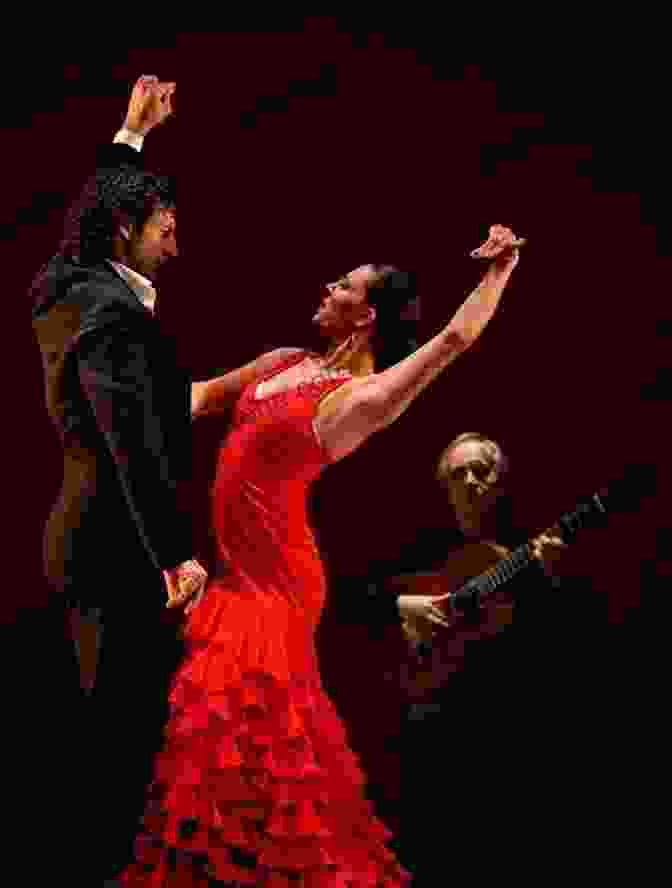
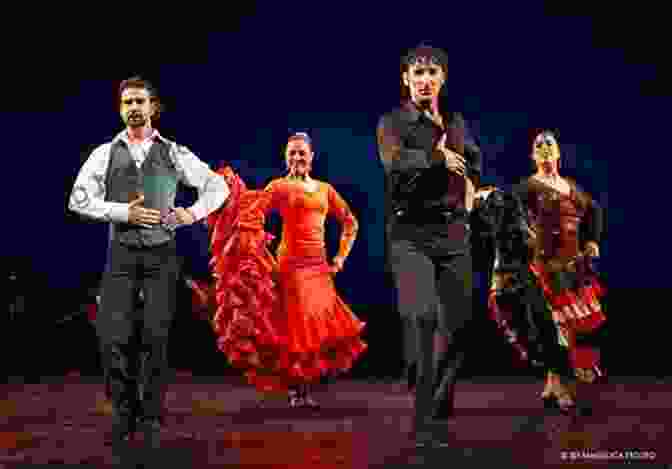
4.9 out of 5
| Language | : | English |
| File size | : | 6109 KB |
| Text-to-Speech | : | Enabled |
| Screen Reader | : | Supported |
| Enhanced typesetting | : | Enabled |
| Print length | : | 315 pages |
| Lending | : | Enabled |
Do you want to contribute by writing guest posts on this blog?
Please contact us and send us a resume of previous articles that you have written.
 Best Book
Best Book Page Flip
Page Flip Bookshelf
Bookshelf Literary loom
Literary loom Chapter
Chapter Bookish
Bookish PageTurner
PageTurner Bibliophile
Bibliophile Story
Story Inkwell
Inkwell Bookworm
Bookworm Labyrinth
Labyrinth Plot Twist
Plot Twist Prose
Prose Paperback
Paperback Storyteller
Storyteller Sanctuary
Sanctuary Fiction
Fiction Reading
Reading Chronicle
Chronicle Read
Read 1st Edition Kindle Edition
1st Edition Kindle Edition Alan Verskin
Alan Verskin C M Carney
C M Carney Ava Reid
Ava Reid Alan Sanders
Alan Sanders Laurie Birnsteel
Laurie Birnsteel Alan Grainger
Alan Grainger Chip Kidd
Chip Kidd Alan Dean Foster
Alan Dean Foster Christian Stoll
Christian Stoll Giovanni Iannoni
Giovanni Iannoni Aisha Sabatini Sloan
Aisha Sabatini Sloan Al Davidson
Al Davidson Christian Cameron
Christian Cameron Sarah Ferguson
Sarah Ferguson Anne Thomas Soffee
Anne Thomas Soffee Francisco Martin Rayo
Francisco Martin Rayo Saleem H Ali
Saleem H Ali Scott Harwood
Scott Harwood Jennifer Egan
Jennifer Egan Nicki Grace
Nicki Grace Haroon Moghul
Haroon Moghul Marian Filar
Marian Filar Bradley Wright
Bradley Wright Tim Bonyhady
Tim Bonyhady Jean Pederson
Jean Pederson Betty Reid Soskin
Betty Reid Soskin Russell Staiff
Russell Staiff Ella Frances Sanders
Ella Frances Sanders Alda Sigmundsdottir
Alda Sigmundsdottir Alicia Drake
Alicia Drake Stuart Thornton
Stuart Thornton Ken Layne
Ken Layne John Perrier
John Perrier Amy Tan
Amy Tan Yvvette Edwards
Yvvette Edwards Alex Wagner
Alex Wagner Alex Kava
Alex Kava Tom Scocca
Tom Scocca F Sehnaz Bac
F Sehnaz Bac Robert Byron
Robert Byron Jessica Fanigliulo
Jessica Fanigliulo Mary Brooks Picken
Mary Brooks Picken Aimee Nezhukumatathil
Aimee Nezhukumatathil Bill Dixon
Bill Dixon Ed Miller
Ed Miller Bart Rulon
Bart Rulon Alex Tannen
Alex Tannen Sjeng Scheijen
Sjeng Scheijen Dale Olausen
Dale Olausen Brenda Barrett
Brenda Barrett Erika Hecht
Erika Hecht Samuel R Delany
Samuel R Delany Alain Kerzoncuf
Alain Kerzoncuf Lon Varnadore
Lon Varnadore Akiko Busch
Akiko Busch Samantha Downing
Samantha Downing Glyn Macey
Glyn Macey Max Eisen
Max Eisen George Bernard Shaw
George Bernard Shaw Siddharth Anbalagan
Siddharth Anbalagan Yahtzee Croshaw
Yahtzee Croshaw Jason Cordova
Jason Cordova Linda Bloomfield
Linda Bloomfield Geoff Hann
Geoff Hann Reshonda Tate Billingsley
Reshonda Tate Billingsley C N Phillips
C N Phillips Greg Jenkins
Greg Jenkins Alex White
Alex White Harry Thurston
Harry Thurston Robin Meloy Goldsby
Robin Meloy Goldsby Donna Digiuseppe
Donna Digiuseppe John French
John French Arlene Croce
Arlene Croce Malka Older
Malka Older Gregory Michie
Gregory Michie Michael J Fox
Michael J Fox Alastair Campbell
Alastair Campbell Alex Moore
Alex Moore Charlene Tarbox
Charlene Tarbox Luciano Thomazelli
Luciano Thomazelli Natasha Boyd
Natasha Boyd Justin Monroe
Justin Monroe Alecia J
Alecia J E C Godhand
E C Godhand Paul Austin
Paul Austin J Pal
J Pal Mary Ann Shaffer
Mary Ann Shaffer Eileen Sorg
Eileen Sorg Adrien Gombeaud
Adrien Gombeaud Kayleigh Mcenany
Kayleigh Mcenany Akaisha Kaderli
Akaisha Kaderli Azalea Ellis
Azalea Ellis Jim Hinckley
Jim Hinckley Adam Roberts
Adam Roberts Alejandro Jodorowsky
Alejandro Jodorowsky Frances Kai Hwa Wang
Frances Kai Hwa Wang Kirsten Weiss
Kirsten Weiss Julie Collins
Julie Collins Alberto Manguel
Alberto Manguel C M Muller
C M Muller Sean Hall
Sean Hall Peter Gray
Peter Gray Marco Livingstone
Marco Livingstone Lavonne Mueller
Lavonne Mueller Tim Lawrence
Tim Lawrence Charles Mccormac
Charles Mccormac Hob Osterlund
Hob Osterlund Lama Rod Owens
Lama Rod Owens My Daily Spanish
My Daily Spanish Karl Beecher
Karl Beecher Ivy Mix
Ivy Mix Eddie R Hicks
Eddie R Hicks Beth Alison Maloney
Beth Alison Maloney D Rus
D Rus Mark William Shaw
Mark William Shaw Alex Hillkurtz
Alex Hillkurtz Sabrina Devonshire
Sabrina Devonshire Giannalberto Bendazzi
Giannalberto Bendazzi Jeanne Filler Scott
Jeanne Filler Scott Dima Ghawi
Dima Ghawi Ben D Over
Ben D Over Roger Bennett
Roger Bennett Afia Atakora
Afia Atakora Jennie Allen
Jennie Allen Bobby Love
Bobby Love Eric Goldberg
Eric Goldberg Tupac Shakur
Tupac Shakur Edmund Morris
Edmund Morris Alan Veale
Alan Veale Frank Catalano
Frank Catalano Naughty Dog
Naughty Dog Anne Glenconner
Anne Glenconner Rocio Carvajal
Rocio Carvajal Paul Clark
Paul Clark Anna M Church
Anna M Church Dominique Dupuy
Dominique Dupuy Troy Taylor
Troy Taylor Herman Wouk
Herman Wouk Tyler Green
Tyler Green Alex Berenson
Alex Berenson Dave Cornthwaite
Dave Cornthwaite Geert Mak
Geert Mak Adrian Tchaikovsky
Adrian Tchaikovsky Michael Samerdyke
Michael Samerdyke Thomas Huhti
Thomas Huhti Jeffery H Haskell
Jeffery H Haskell Kerry Trout
Kerry Trout Michael Booth
Michael Booth James S A Corey
James S A Corey Fiona Maccarthy
Fiona Maccarthy A J Markam
A J Markam Robert Clark
Robert Clark Aleksandr Solzhenitsyn
Aleksandr Solzhenitsyn Thomas Geve
Thomas Geve Judy A Bernstein
Judy A Bernstein Paula Marantz Cohen
Paula Marantz Cohen Rudy Rucker
Rudy Rucker Albert Samaha
Albert Samaha Alan Rabinowitz
Alan Rabinowitz Alan Jacobson
Alan Jacobson Cassia Cogger
Cassia Cogger Aleron Kong
Aleron Kong Al Saadiq Banks
Al Saadiq Banks Tom Dunkel
Tom Dunkel Cynthia D Yoder
Cynthia D Yoder Josh Golding
Josh Golding Amanda Gorman
Amanda Gorman Albert Corbeto
Albert Corbeto Dave Addey
Dave Addey Richard Ayoade
Richard Ayoade Lee Goldberg
Lee Goldberg Torben Landskrone
Torben Landskrone Ted Okuda
Ted Okuda John Ingledew
John Ingledew Katie Daisy
Katie Daisy Alex Zadeh
Alex Zadeh Akwaeke Emezi
Akwaeke Emezi Sarah Polley
Sarah Polley Seth Kugel
Seth Kugel Alastair Vere Nicoll
Alastair Vere Nicoll Francis M Higman
Francis M Higman Nancy Marguerite Anderson
Nancy Marguerite Anderson Gareth C Meadows
Gareth C Meadows Aleksandar Hemon
Aleksandar Hemon Michael Anderson
Michael Anderson Magunta Dayakar
Magunta Dayakar Adam Nayman
Adam Nayman Alan Colquhoun
Alan Colquhoun Randy Palmer
Randy Palmer Albert Blasco Peris
Albert Blasco Peris Franklyn Griffiths
Franklyn Griffiths Sarah Spencer
Sarah Spencer Anne Vipond
Anne Vipond Alex Albrinck
Alex Albrinck Monica Russel
Monica Russel A J Liebling
A J Liebling John Gold
John Gold Paul J Pastor
Paul J Pastor Anthony Doerr
Anthony Doerr N Dia Rae
N Dia Rae Gerald L Kooyman
Gerald L Kooyman Masahiro Kasahara
Masahiro Kasahara Mary Monroe
Mary Monroe Alex Hibbert
Alex Hibbert Robert Marshall
Robert Marshall Graham Mcneill
Graham Mcneill Keila Rowe
Keila Rowe Charles De Lint
Charles De Lint Huma Abedin
Huma Abedin Rozsika Parker
Rozsika Parker R J Patterson
R J Patterson Wes Mcdowell
Wes Mcdowell Allison Moore
Allison Moore Nicolas Sellens
Nicolas Sellens Agatha Christie
Agatha Christie Harlow Robinson
Harlow Robinson Markus S Agerer
Markus S Agerer David Morrell
David Morrell Grace Lees Maffei
Grace Lees Maffei Tamara Thiessen
Tamara Thiessen Philip Norman
Philip Norman Anne Macleod
Anne Macleod Gary Jennings
Gary Jennings Laurieann Gibson
Laurieann Gibson Anais Granofsky
Anais Granofsky Alexa West
Alexa West Noam Oswin
Noam Oswin Rob Stone
Rob Stone Adele Wagstaff
Adele Wagstaff Julian Hoxter
Julian Hoxter Colette Pitcher
Colette Pitcher Alexa Martin
Alexa Martin Aimee Alexander
Aimee Alexander John Phillip Santos
John Phillip Santos Alex Jennings
Alex Jennings Danie Ware
Danie Ware Cherrie Moraga
Cherrie Moraga Ajax Lygan
Ajax Lygan Tom Wood
Tom Wood Richard Poulin
Richard Poulin Danny Newman
Danny Newman Alec Potrero
Alec Potrero Laurel Hart
Laurel Hart Claudia Rankine
Claudia Rankine Alejandro Zambrano Sevillano
Alejandro Zambrano Sevillano Faith Hunter
Faith Hunter Smashing Magazine
Smashing Magazine Diane Mierzwik
Diane Mierzwik Misba
Misba John Varley
John Varley William C Meadows
William C Meadows Alex Gough
Alex Gough Richard F Weyand
Richard F Weyand Emilie Conrad Da Oud
Emilie Conrad Da Oud Alex Robinson
Alex Robinson Josh Holliday
Josh Holliday D K Holmberg
D K Holmberg Michael Reyes
Michael Reyes Margaret Mitchell
Margaret Mitchell Soon Y Warren
Soon Y Warren Juhea Kim
Juhea Kim Richard Hunt
Richard Hunt Matthew Reilly
Matthew Reilly Fanny Kelly
Fanny Kelly Bob Rohm
Bob Rohm A J Alonzo Wind
A J Alonzo Wind Jack L Grossman
Jack L Grossman Lee Craker
Lee Craker Tracy Michaud
Tracy Michaud Georgia Purdom
Georgia Purdom 3rd Edition Kindle Edition
3rd Edition Kindle Edition Tom Weaver
Tom Weaver Stefan Zweig
Stefan Zweig Shelli Marie
Shelli Marie Maturin Murray Ballou
Maturin Murray Ballou James Baldwin
James Baldwin Candida R Moss
Candida R Moss Cheech Marin
Cheech Marin Armond T Joyce
Armond T Joyce Jack Anderson
Jack Anderson St Paul S Greek Orthodox Church
St Paul S Greek Orthodox Church Michael Sayman
Michael Sayman Ricardo Victoria
Ricardo Victoria Sarah Crafts
Sarah Crafts Craig Johnson
Craig Johnson Michael Connelly
Michael Connelly Osman Yousefzada
Osman Yousefzada Peter Warner
Peter Warner Elizabeth Holmes
Elizabeth Holmes Simon Callow
Simon Callow Amanda Lawrence
Amanda Lawrence Brien Foerster
Brien Foerster Michelle Loucadoux
Michelle Loucadoux Jeffrey Spivak
Jeffrey Spivak Ella Blake
Ella Blake Ramy Vance
Ramy Vance Mary Karr
Mary Karr A D Davies
A D Davies Christoph Brueck
Christoph Brueck J D Adams
J D Adams Matt Ortile
Matt Ortile Garret Romaine
Garret Romaine Rich Polanco
Rich Polanco Barbara Brownie
Barbara Brownie Ally Morin
Ally Morin Bill Manley
Bill Manley Peter Burke
Peter Burke Martin Edge
Martin Edge Martin Mosebach
Martin Mosebach Christopher G Nuttall
Christopher G Nuttall Winifred Brown
Winifred Brown Paul Hadden
Paul Hadden Luke F D Marsden
Luke F D Marsden Bernard Cornwell
Bernard Cornwell Sara Barnes
Sara Barnes Neil Wilson
Neil Wilson Kimiko Kitani
Kimiko Kitani Sherry Turkle
Sherry Turkle Abdul El Sayed
Abdul El Sayed Jesse Wente
Jesse Wente Hans Keilson
Hans Keilson Fiona Humberstone
Fiona Humberstone S Elizabeth
S Elizabeth Margaret Shepherd
Margaret Shepherd Lauren D Schmalz
Lauren D Schmalz Ninni Holmqvist
Ninni Holmqvist Rhonda K Garelick
Rhonda K Garelick Rachael Cerrotti
Rachael Cerrotti Wakefield Poole
Wakefield Poole Alastair Reynolds
Alastair Reynolds Matthew Bourne
Matthew Bourne Jennifer Lilya
Jennifer Lilya Michele Bousquet
Michele Bousquet Ann Torrence
Ann Torrence Tara Ellis
Tara Ellis Danielle Donaldson
Danielle Donaldson Geronimo
Geronimo Nikolaus Julius Weichselbaumer
Nikolaus Julius Weichselbaumer Roberto Lovato
Roberto Lovato Kelly Bowen
Kelly Bowen Akiva Teddy Macleod
Akiva Teddy Macleod A R Corbin
A R Corbin Akira Kurosawa
Akira Kurosawa Roxana Robinson
Roxana Robinson Kazuaki Tanahashi
Kazuaki Tanahashi Louise Erdrich
Louise Erdrich Aurora Levins Morales
Aurora Levins Morales Lawrence F Lihosit
Lawrence F Lihosit Elizabeth Mcpherson
Elizabeth Mcpherson Robert M Kerns
Robert M Kerns Jeff Lieberman
Jeff Lieberman Nancy Beiman
Nancy Beiman Alejandra Viscarra
Alejandra Viscarra Emily Maker
Emily Maker A K Duboff
A K Duboff Alan Carr
Alan Carr Nancy Milford
Nancy Milford P T Books
P T Books Aleksandar Nedeljkovic
Aleksandar Nedeljkovic Kathleen Brady
Kathleen Brady Viola Shipman
Viola Shipman Bernard Diederich
Bernard Diederich Don Yaeger
Don Yaeger Stefano Mancuso
Stefano Mancuso Adele P Margolis
Adele P Margolis V A Lewis
V A Lewis Guy Kawasaki
Guy Kawasaki Nikki Giovanni
Nikki Giovanni Stephen Bodio
Stephen Bodio Patrick J Flannigan
Patrick J Flannigan Vinny Sagoo
Vinny Sagoo Fadel Abuelula
Fadel Abuelula Anita Friedman
Anita Friedman Gerhard Haase Hindenberg
Gerhard Haase Hindenberg Robert Condon
Robert Condon Jane Patrick
Jane Patrick Veronica Sekules
Veronica Sekules Irmgard Bartenieff
Irmgard Bartenieff Alex Kerr
Alex Kerr Tod Benoit
Tod Benoit Dustin Lynx
Dustin Lynx Junheng Li
Junheng Li Kim E Nielsen
Kim E Nielsen Nihon Vogue
Nihon Vogue Eden Dawn
Eden Dawn Gary Zacny
Gary Zacny Alex Danchev
Alex Danchev Alex Tizon
Alex Tizon Aki Choklat
Aki Choklat Ntozake Shange
Ntozake Shange Albert Woodfox
Albert Woodfox Geninne Zlatkis
Geninne Zlatkis Ak Turner
Ak Turner Abdulrazak Gurnah
Abdulrazak Gurnah Alberlin Torres
Alberlin Torres Adrienne Keene
Adrienne Keene Despina Stratigakos
Despina Stratigakos Scott Bukatman
Scott Bukatman Laurie Schneider Adams
Laurie Schneider Adams Mia P Manansala
Mia P Manansala Hayley Mills
Hayley Mills Inman Learning
Inman Learning G J Ogden
G J Ogden Alan Bachmann
Alan Bachmann William Golding
William Golding Richard Doetsch
Richard Doetsch Pam Cook
Pam Cook Jennifer Sewing
Jennifer Sewing Rosa Park
Rosa Park Keisha Ervin
Keisha Ervin Cecil Jenkins
Cecil Jenkins Al Sharpton
Al Sharpton Susan Evenson
Susan Evenson Mariusz Krukowski
Mariusz Krukowski Alex Dudok De Wit
Alex Dudok De Wit Jessica Lee
Jessica Lee Charles Chipiez
Charles Chipiez George Monbiot
George Monbiot Gregory Benford
Gregory Benford Paul Curry
Paul Curry Jack Jewers
Jack Jewers Marco Leonel Garcia Gonzalez
Marco Leonel Garcia Gonzalez Michael Weeks
Michael Weeks Stuart Taylor
Stuart Taylor Eric Sprinkle
Eric Sprinkle Sandie Heron
Sandie Heron Robyn Blakeman
Robyn Blakeman Aileen Bordman
Aileen Bordman K J Gillenwater
K J Gillenwater Adeline Lim
Adeline Lim Richard Lloyd Parry
Richard Lloyd Parry Evanna Lynch
Evanna Lynch Alan Maimon
Alan Maimon James Willis
James Willis William Gaskill
William Gaskill Joan Druett
Joan Druett Heather Hutchison
Heather Hutchison A E Filby
A E Filby Rian Hughes
Rian Hughes Alex Grey
Alex Grey Katja Schmitt
Katja Schmitt A J Diamond
A J Diamond Tom Swimm
Tom Swimm Adrien Clautrier
Adrien Clautrier Gay Talese
Gay Talese Living Languages
Living Languages Chloe Garner
Chloe Garner Roland Nyns
Roland Nyns Lynsey Addario
Lynsey Addario Robert Arp
Robert Arp John Maloof
John Maloof L Loren
L Loren Julian Bell
Julian Bell Joseph Campbell
Joseph Campbell Eliane Strosberg
Eliane Strosberg Mark Christopher Weber
Mark Christopher Weber Afua Hirsch
Afua Hirsch Aer Ki Jyr
Aer Ki Jyr Greg Sestero
Greg Sestero David Conyers
David Conyers Alex Kotlowitz
Alex Kotlowitz Daniel Kay Hertz
Daniel Kay Hertz Joseph Kim
Joseph Kim Harold Holzer
Harold Holzer Alan Laycock
Alan Laycock Massoud Hayoun
Massoud Hayoun Howexpert Press
Howexpert Press Belinda Smith Cicarella
Belinda Smith Cicarella Matt Dickinson
Matt Dickinson Ginger Zee
Ginger Zee Andrew Solomon
Andrew Solomon Timothy Samara
Timothy Samara Gail Pool
Gail Pool Terez Mertes Rose
Terez Mertes Rose Aeham Ahmad
Aeham Ahmad Kindle Edition
Kindle Edition Peter Samuel
Peter Samuel Christopher P Jones
Christopher P Jones Andy Steves
Andy Steves Ann Maclean
Ann Maclean Andrew Morton
Andrew Morton Paul Hallas
Paul Hallas Amy Latta
Amy Latta Brad Thor
Brad Thor Alfons Kaiser
Alfons Kaiser Learning Through Activities
Learning Through Activities Rachel Mcmillan
Rachel Mcmillan Peter Carey
Peter Carey Alan Smith
Alan Smith Judith M Heimann
Judith M Heimann John Gonzalez
John Gonzalez Antony Sher
Antony Sher Ann Mah
Ann Mah Alan M Davis
Alan M Davis Alex Foster
Alex Foster Alan Murphy
Alan Murphy Heidi Moksnes
Heidi Moksnes Allison Pataki
Allison Pataki Stephen Davis
Stephen Davis J R R Tolkien
J R R Tolkien Chimamanda Ngozi Adichie
Chimamanda Ngozi Adichie Mark Panek
Mark Panek George Smith
George Smith M Osman Siddique
M Osman Siddique Fluent In Korean
Fluent In Korean Adrian Dater
Adrian Dater Laura Galloway
Laura Galloway Peter Gethers
Peter Gethers Alistair Urquhart
Alistair Urquhart A J Verdelle
A J Verdelle Antonio Centeno
Antonio Centeno Terry Barrett
Terry Barrett Felix R Savage
Felix R Savage Shaul Kelner
Shaul Kelner Herman Melville
Herman Melville
Light bulbAdvertise smarter! Our strategic ad space ensures maximum exposure. Reserve your spot today!

 Spencer PowellLight Hearted and Enlightening World Travel: An Exploration of the World's...
Spencer PowellLight Hearted and Enlightening World Travel: An Exploration of the World's... George MartinFollow ·18.6k
George MartinFollow ·18.6k George HayesFollow ·8.2k
George HayesFollow ·8.2k Ivan TurnerFollow ·15k
Ivan TurnerFollow ·15k Brayden ReedFollow ·7.9k
Brayden ReedFollow ·7.9k Cason CoxFollow ·11k
Cason CoxFollow ·11k Garrett PowellFollow ·13k
Garrett PowellFollow ·13k Devin RossFollow ·19.2k
Devin RossFollow ·19.2k Ira CoxFollow ·19.1k
Ira CoxFollow ·19.1k

 Stephen King
Stephen KingJudge This: The Unforgettable Book Covers of Chip Kidd
Chip Kidd is one of the most...

 Curtis Stewart
Curtis StewartSovereignty, Security, and Stewardship: Interwoven...
The geopolitical landscape of the 21st...

 Jay Simmons
Jay SimmonsOnly What Necessary: The Ultimate Guide to Minimalist...
Unveiling the Transformative...

 Austin Ford
Austin FordMaster Your Cricut Maker: Unleashing the Power of Design...
Embracing the Cricut...
4.9 out of 5
| Language | : | English |
| File size | : | 6109 KB |
| Text-to-Speech | : | Enabled |
| Screen Reader | : | Supported |
| Enhanced typesetting | : | Enabled |
| Print length | : | 315 pages |
| Lending | : | Enabled |


